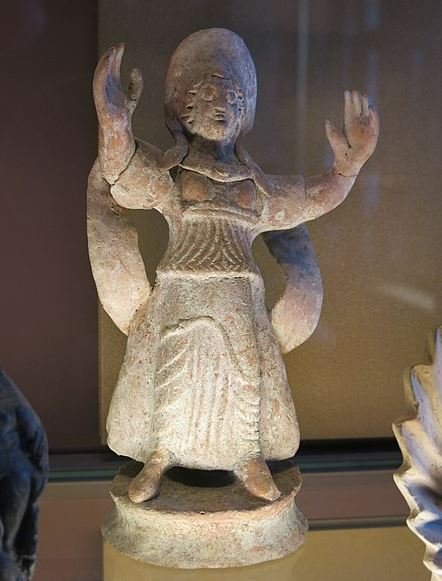Mithridates V Euergetes
by World History Edu · January 21, 2025
Mithridates V Euergetes was the seventh king of the Kingdom of Pontus, reigning until around 120 BC. He was known for his Greek Macedonian and Persian ancestry and his contributions to Hellenic culture.
Background and Lineage
Mithridates V Euergetes’s name means “Mithridates the Benefactor” in Ancient Greek (Μιθριδάτης ὁ Eὐεργέτης). He was a prince and the seventh ruler of the Kingdom of Pontus. He descended from a blend of Greek Macedonian and Persian ancestry. Mithridates V was the son of King Pharnaces I and Queen Nysa, with his sister being Nysa of Cappadocia. It is believed that his mother, Nysa, died during childbirth, either giving birth to him or his sister.
Raised in the Kingdom of Pontus, Mithridates V ascended the throne after the reign of his paternal aunt Laodice and paternal uncle Mithridates IV. However, the precise circumstances of his accession remain unclear.

An artwork depicting Mithridates V Euergetes.
Relations with Rome and Political Alliances
Mithridates V maintained and strengthened the alliance with Rome, a policy initiated by his predecessors. His support included providing ships and auxiliary forces during the Third Punic War. Furthermore, he aided Rome in their conflict with King Eumenes III of Pergamon (131–129 BC). These actions solidified his position as a valuable ally to Rome.
He expanded his kingdom through diplomacy, notably marrying his daughter Laodice to King Ariarathes VI of Cappadocia.
As a reward for his contributions, Mithridates V was granted control over the province of Phrygia by the Roman consul Manius Aquillius. Although the Roman Senate later annulled this grant due to allegations of bribery, Mithridates V seemingly retained control of Phrygia until his death. His reign also saw the expansion of Pontus’ influence through strategic marriages, including the union of his daughter, Laodice, with King Ariarathes VI of Cappadocia.
Cultural Contributions and Veneration of Apollo
Mithridates V was a notable benefactor of Hellenic culture, as evidenced by surviving coins and inscriptions that highlight his generosity. His contributions were particularly evident in Athens and Delos, where he funded significant projects. Additionally, Mithridates V held the Greek god Apollo in high esteem, reflecting his commitment to Greek cultural and religious traditions. A bilingual inscription dedicated to him remains on display at the Capitoline Museums in Rome, attesting to his legacy.
Assassination and Burial
Mithridates V met a tragic end around 120 BC when he was assassinated in Sinope. He was poisoned during a grand banquet, though the identities of those responsible remain unknown. Following his death, Mithridates V was interred in the royal tombs of his ancestors in Amasya. His assassination marked the end of his reign, with his son, Mithridates VI, succeeding him in the same year.

Family and Marital Alliances
Mithridates V married Laodice VI, a Greek Seleucid princess and the daughter of Antiochus IV Epiphanes and Laodice IV. This union further connected him to the Seleucid dynasty, strengthening Pontus’ ties with one of the most prominent Hellenistic kingdoms of the era.
Together, Mithridates V and Laodice VI had eight children:
- Laodice of Cappadocia
- Mithridates VI Eupator (who became one of the most famous kings of Pontus)
- Mithridates Chrestus
- Laodice
- Nysa (or Nyssa)
- Roxana
- Statira
- Another Laodice
The fates of his children reflect the turbulent times of the Hellenistic world. For instance, Roxana and Statira were forced to commit suicide with poison following the fall of Pontus in 63 BC. Nysa was captured by the Romans and paraded during the triumphs of two Roman generals, highlighting the eventual decline of the Pontic Kingdom.

Frequently Asked Questions
What was Mithridates V’s family background?
He was the son of King Pharnaces I and Queen Nysa and had a sister, Nysa of Cappadocia. His wife, Laodice VI, was a Seleucid princess, and together they had eight children, including Mithridates VI and Laodice of Cappadocia.
How did Mithridates V come to power?
He succeeded his paternal aunt Laodice and uncle Mithridates IV, though the circumstances of his accession are unclear.
What was his relationship with Rome?
Mithridates V continued Pontus’ alliance with Rome, supporting them during the Third Punic War and the war against Eumenes III of Pergamon. He was rewarded with the province of Phrygia, though its status was later contested.
How did his reign end?
Mithridates V was assassinated around 120 BC, poisoned at a banquet. His son, Mithridates VI, succeeded him.
What cultural contributions did Mithridates V make?
He was a benefactor of Hellenic culture, as evidenced by coins, inscriptions, and donations in Athens and Delos. He venerated the Greek god Apollo.
What happened to his family after his death?
His children faced tragic ends. Roxana and Statira killed themselves after Pontus fell in 63 BC, and Nysa was captured and paraded in Roman triumphs.
























